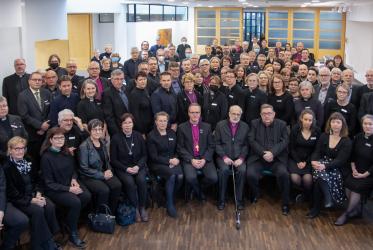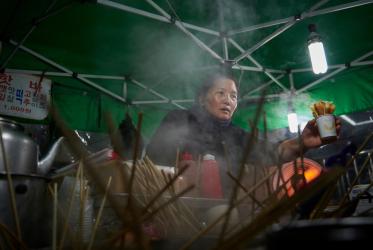Displaying 1 - 20 of 27
CCIA meets in Brisbane with focus on Pacific regional priorities
19 February 2020
Hanbeet Rhee: “Young people can be bridges”
17 October 2019
Peacemakers at work in Sri Lanka
29 April 2019
Thursdays in Black: sharing support, transforming lives
21 February 2019
WCC calls for prayer for flood-stricken Kerala, India
18 August 2018
Consultation considers right to food in context of climate change
15 December 2015
Land rights focus of panel discussion
17 November 2015











